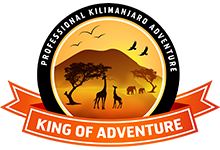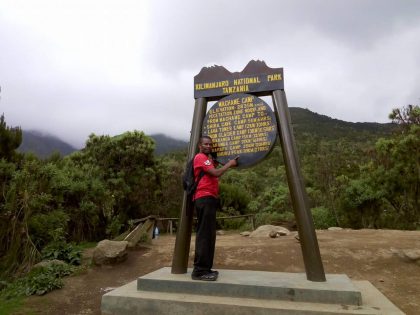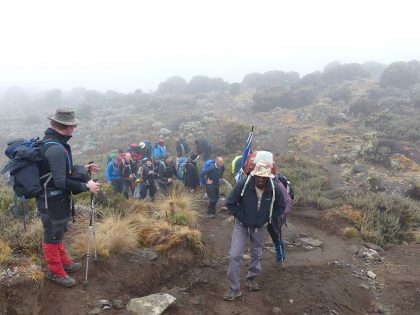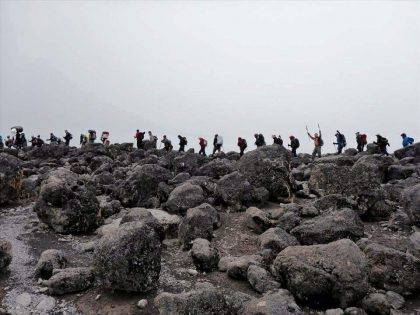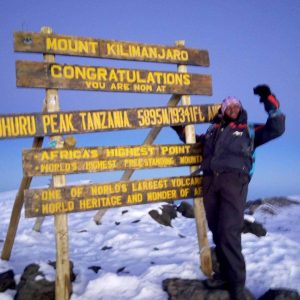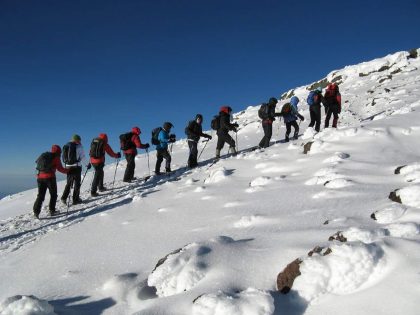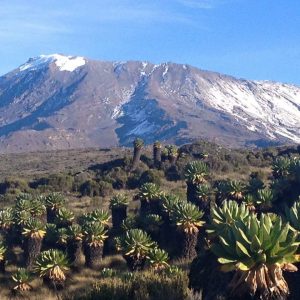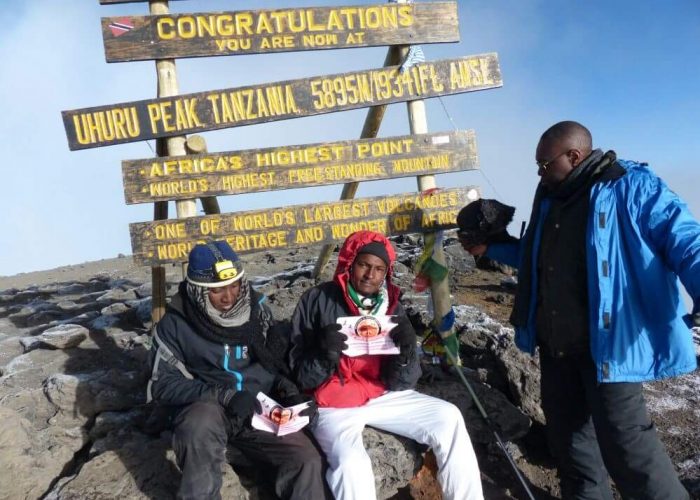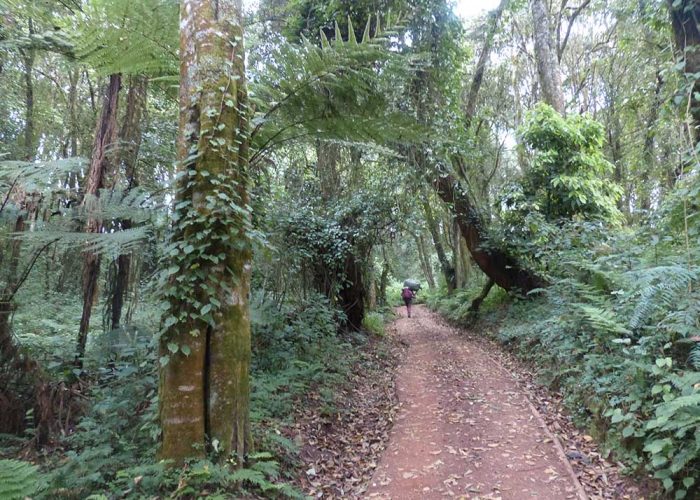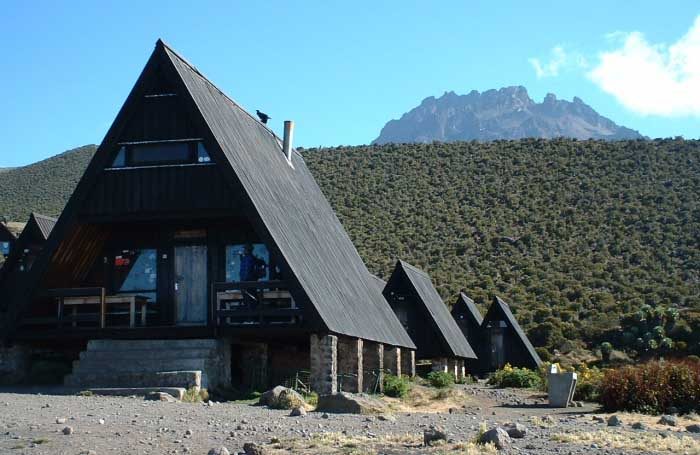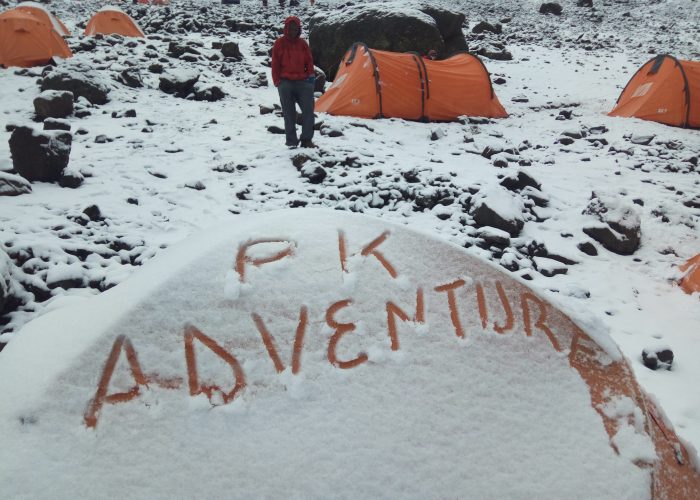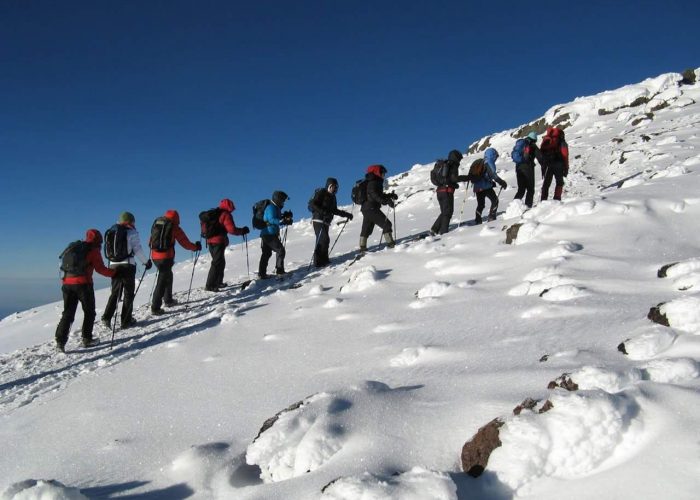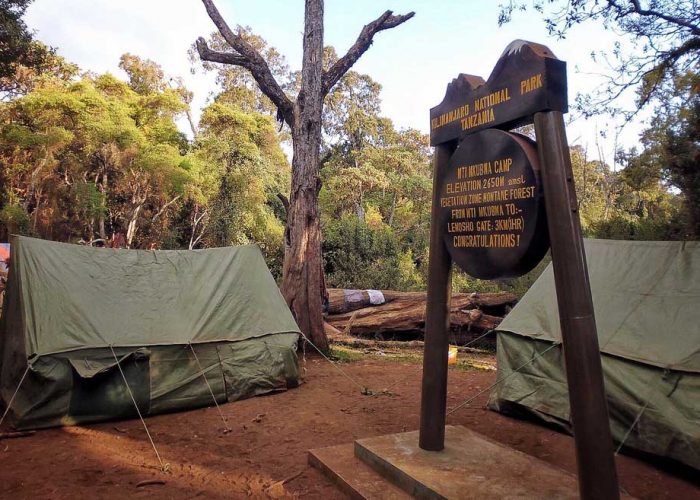- Distance: ~10km / 6.5 miles
- Trekking time: 3-4 hours
- Zone: Rainforest zone
The final day is a short hike through the dense montane rainforest from Millennium Camp (3,950 meters) to Mweka Gate (1,640 meters). At the gate you will need to sign-out with the authorities, who will also provide you with your official certificate – a green certificate for those who made it to Gilman’s Point and a gold certificate for those who reached Uhuru Peak. It is customary to give your guide and porter tips before being driven back to your hotel in Moshi.

